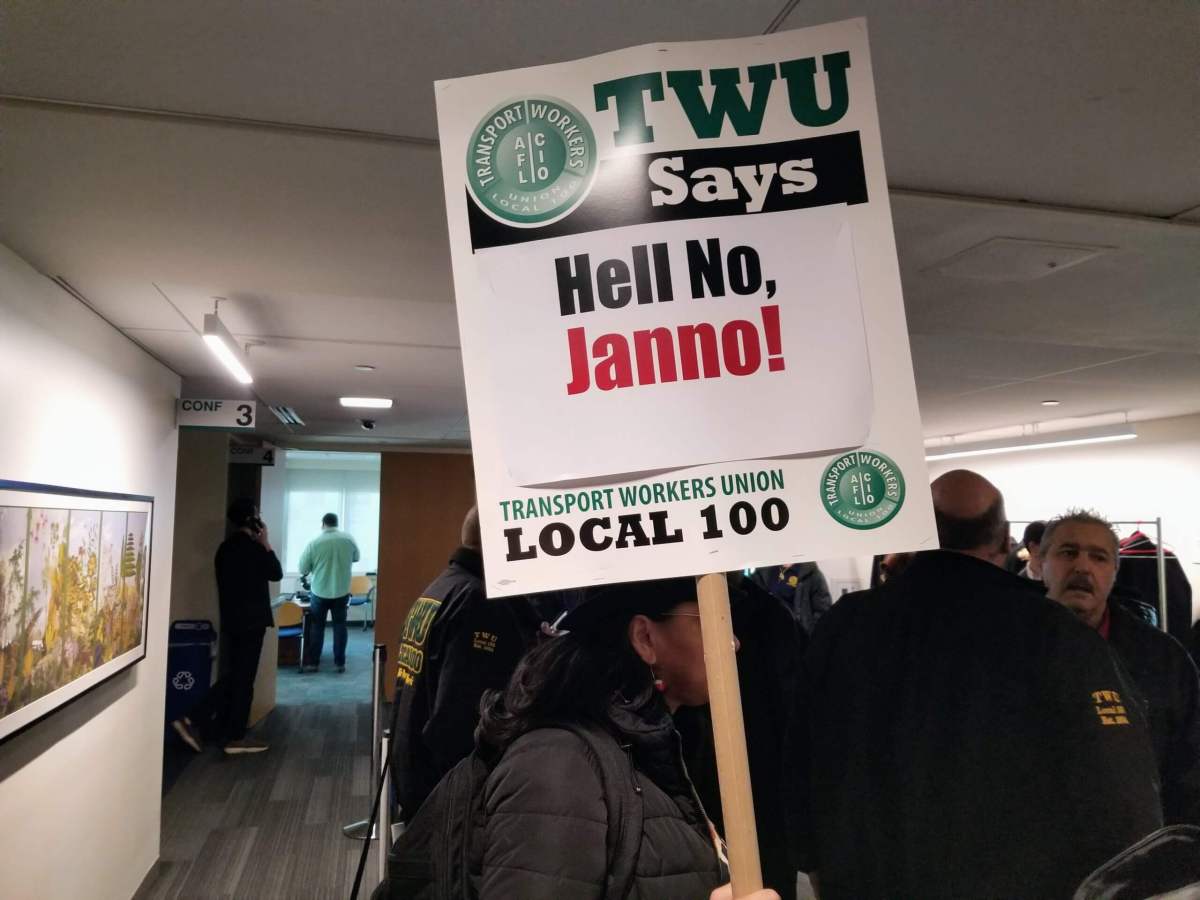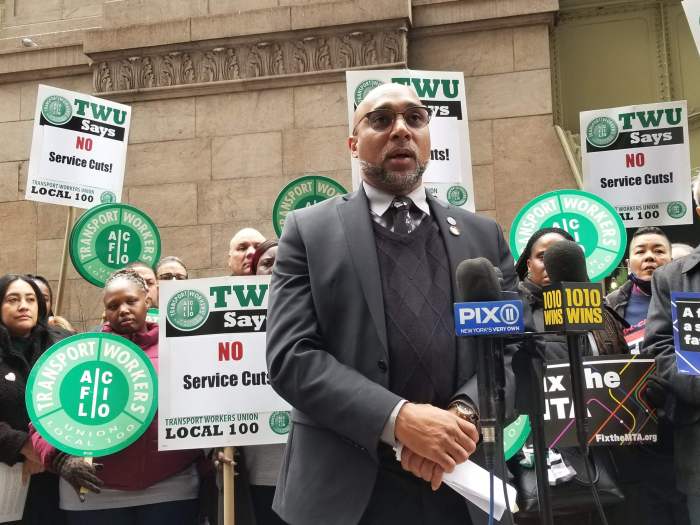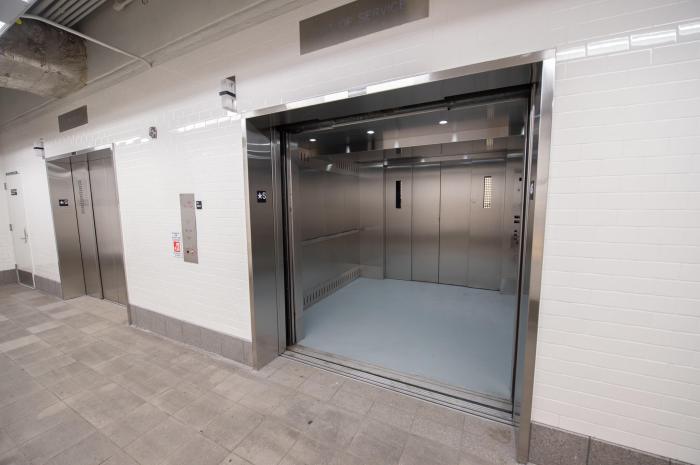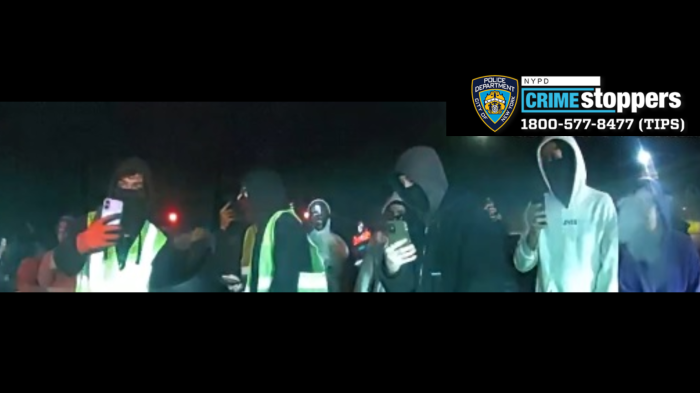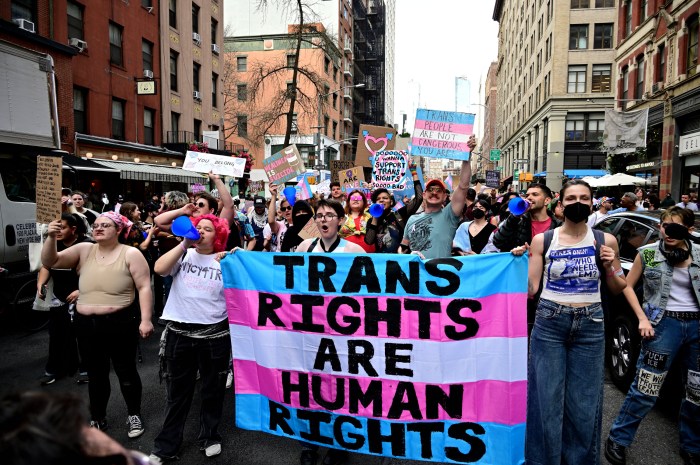MTA executives and the leaders of the largest union representing transit workers have failed to reach an employment agreement, blowing past the May 15 deadline when the old labor deal expired.
On Monday evening, Transport Workers Union Local 100 President Richard Davis — who represents some 40,000 New York City subway and bus employees at the bargaining table — posted on the union’s website that the talks with MTA leadership had encountered various “stumbling blocks,” including on healthcare coverage for the families of the 110 transit workers who died from COVID-19 after working during the 2020 lockdown, and on paying for therapy for members’ autistic children.
“We are working hard to secure the fairest deal possible,” Davis told rank-and-file members in the message posted to the union website. “Right now, there are several stumbling blocks. The MTA is showing a lack of respect for our members on issues big and small.”
The labor big said that various other sticking points were preventing a deal from coming to fruition, and that the two sides resumed negotiations on Tuesday. The union’s existing contract will remain in effect until a new deal is reached and approved by members.
Last month, the union put out a list of contract demands that included, among other things: hazard pay, six months of paid family leave, expanded death benefits, lifetime spousal medical benefits, and no increase in contributions for healthcare. Beyond lifetime medical benefits for families of COVID victims, the union also wants to add “COVID Remembrance Day” as a scheduled holiday.
On Saturday, the union tweeted that the MTA had countered TWU’s asks with their own “PATHETIC proposal that spits in the faces of NYC Transit workers.” In another tweet, the union tagged Governor Kathy Hochul and said that the transit workers were being treated with “disrespect.”
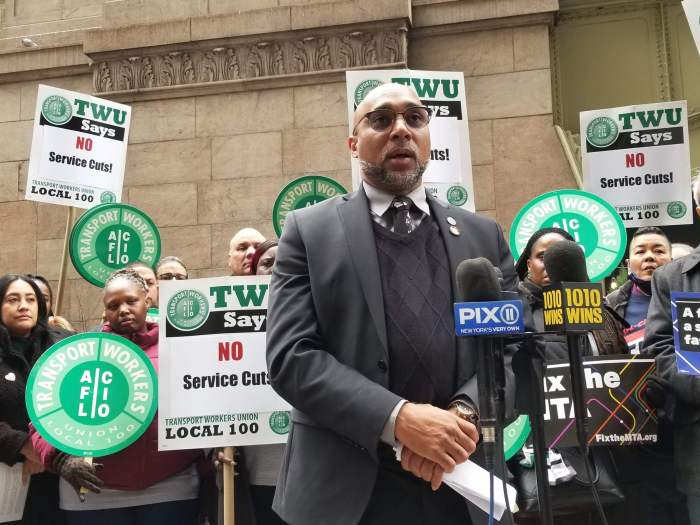
The union is also seeking “substantial wage increases,” although the specific amounts have not been publicly disclosed. The current top hourly wages for TWU members, after being on the job for at least five years, range from $20.12 for part-time traffic checkers — who collect data on ridership, performance, and travel patterns — to $44.36 for maintenance workers at the MTA’s Central Electronics Shop in Woodside, Queens.
Subway conductors’ top wages sit at $34.75, bus operators earn $37.42, and train operators make $39.82.
Wage increases appear to be another sticking point in negotiations. In a statement, the MTA’s senior advisory for communication and policy, Shanifah Rieara, noted that the MTA wants to increase TWU employees’ wages but said they need to stay “consistent” with the state budget approved last month and with other recent labor deals.
“We value the transit work force that kept New York moving during COVID. They deserve a raise and we are trying to work out increases consistent with the approved state budget, and in line with recent labor agreements,” said Rieara. “We look forward to continuing negotiations with TWU Local 100 to get a deal done that both rewards the NYCT work force and assures adoption of common-sense practices that benefit all New Yorkers.”
Under the state budget agreement, the transit agency received new streams of funding to cover a massive impending operating deficit. The MTA will benefit from an increase on payroll taxes for New York City businesses, a cut of future casino revenue, and an increase in subsidy for paratransit from City Hall. The budget also paved the way for a 4% fare hike this year, down from the 5.5% sought by Governor Hochul.
The MTA noted that transit service will not be impacted by the expiration of TWU’s labor deal. But last week, passengers on some Brooklyn bus lines experienced major delays when 175 employees at the Flatbush bus depot staged a three-day sickout without union approval, the Daily News reported.
Strikes by public sector unions are illegal under New York’s Taylor Law, and can result in hefty fines and jail time for union leadership. That didn’t stop the TWU from walking off the job in December 2005 for a three-day strike, but the union wound up incurring more than $1 million in fines and then-president Roger Toussaint was sentenced to ten days in jail.
This year, TWU teamed up with Queens State Senator Jessica Ramos to seek changes to the Taylor Law allowing transit workers to strike if contract negotiations break down. The bill, co-sponsored by Queens Senator John Liu, has been sitting in the upper chamber’s Civil Service & Pensions Committee since March.
Read more: MTA Pays Double for Harlem Land in Subway Expansion



